第47章
The college year had come to an end. The results of the examinations had been published. The Juniors were preparing to depart for their summer work in the mission field. Of the graduating class, some were waiting with calm confidence the indications of the will of Providence as to their spheres of labour, a confidence undoubtedly strengthened by certain letters in their possession from leading members of influential congregations.
Others were preparing with painful shrinking of heart to tread the weary and humiliating "trail of the black bag," while others again, to whom had come visions of high deeds and sounds of distant battle, were making ready outfits supposed to be suitable for life and work in the great West, or in the far lands across the sea.
Two high functions of college life yet remained, one, the Presbytery examination, the other, Professor Macdougall's student party. The annual examination before Presbytery was ever an event of nerve-racking uncertainty. It might prove to be an entirely perfunctory performance of the most innocuous kind. On the other hand, it might develop features of a most sensational and perilous nature. The college barometer this year was unusually depressed, for rumour had gone abroad that the Presbytery examination was to be of the more serious type. It was a time of searchings of heart for those who had been giving, throughout the session, undue attention to the social opportunities afforded by college life, and more especially if they had allowed their contempt for the archaic and oriental to become unnecessarily pronounced. To these latter gentlemen the day brought gloomy forebodings. Even their morning devotions, which were marked by unusual sincerity and earnestness, failed to bring them that calmness of mind which these exercises are supposed to afford. For their slender ray of hope that their memory of the English text might not fail them in the hour of trial was very materially clouded by the dread that in their embarrassment they might assign a perfectly correct English version to the wrong Hebrew text. The result of such mischance they would not allow themselves to contemplate. On the other hand, however, there was the welcome possibility that they might be so able to dispose themselves among the orientalists in their class that a word dropped at a critical moment might save them from this mischance. And there was the further, and not altogether unreal, ground of confidence, that the examiner himself might be uneasily conscious of the ever-present possibility that some hidden Hebrew snag might rudely jag a hole in his own vessel while sailing the mare ignotum of oriental literature. Of course, the examination would also include other departments of sacred learning, for it was the province and duty of Presbytery to satisfy itself as to the soundness in the faith of the candidates before them. On this score, however, few indulged serious anxiety. Once the Hebraic shoals and snags were safely passed, both examiner and examined could disport themselves with a jaunty self-confidence born of a thorough acquaintance with the Shorter Catechism received during the plastic years of childhood.
It was, however, just in these calm waters that danger lurked for Boyle. On the side of scholarship he was known to be invulnerable.
Boyle was the hero and darling of the college men, more especially of the "sinners" among them, not simply by reason of his prowess between the goal posts where, times without number, he had rescued the college from the contempt of its foes; but quite as much for the modesty with which he carried off his brilliant attainments in the class lists. Throughout the term, in the college halls after tea, there had been carried on a series of discussions extending over the whole range of the "fundamentals," and Boyle had the misfortune to rouse the wrath and awaken the concern of Finlay Finlayson, the champion of orthodoxy. Finlay was a huge, gaunt, broad-shouldered son of Uist, a theologian by birth, a dialectician by training, and a man of war by the gift of Heaven. Cheerfully would Finlay, for conscience' sake, have given his body to the flames, as, for conscience' sake, he had shaken off the heretical dust of New College, Edinburgh, from his shoes, unhesitatingly surrendering at the same time, Scot though he was, a scholarship of fifty pounds. The hope that he had cherished of being able to find, in a colonial institution of sacred learning, a safe haven where he might devote himself to the perfecting of the defences of his faith within the citadel of orthodoxy was rudely shattered by the discovery that the same heresies which had driven him from New College had found their way across the sea and were being championed by a man of such winning personality and undoubted scholarship as Richard Boyle. The effect upon Finlayson's mind of these discussions carried on throughout the term was such that, after much and prayerful deliberation, and after due notice to the person immediately affected, he discovered it to be his duty to inform the professor in whose department these subjects lay of the heresies that were threatening the very life of the college, and, indeed, of the Canadian Church.
The report of his interview with the professor came back to college through the realistic if somewhat irreverent medium of the professor's son, Tom, presently pursuing a somewhat leisurely course toward a medical degree. As Tom appeared in the college hall he was immediately surrounded by an eager crowd, the most eager of whom was Robert Duff, the sworn ally of Mr. Finlayson.
"Did Finlayson see your father?" inquired Mr. Duff anxiously.
"Sure thing," answered Tom.
"And did he inform him of what has been going on in this college?"
"You bet your life! Give him the whole tip!"
"And what did the professor say?" inquired Mr. Duff, with bated breath.
"Told him to go to the devil."